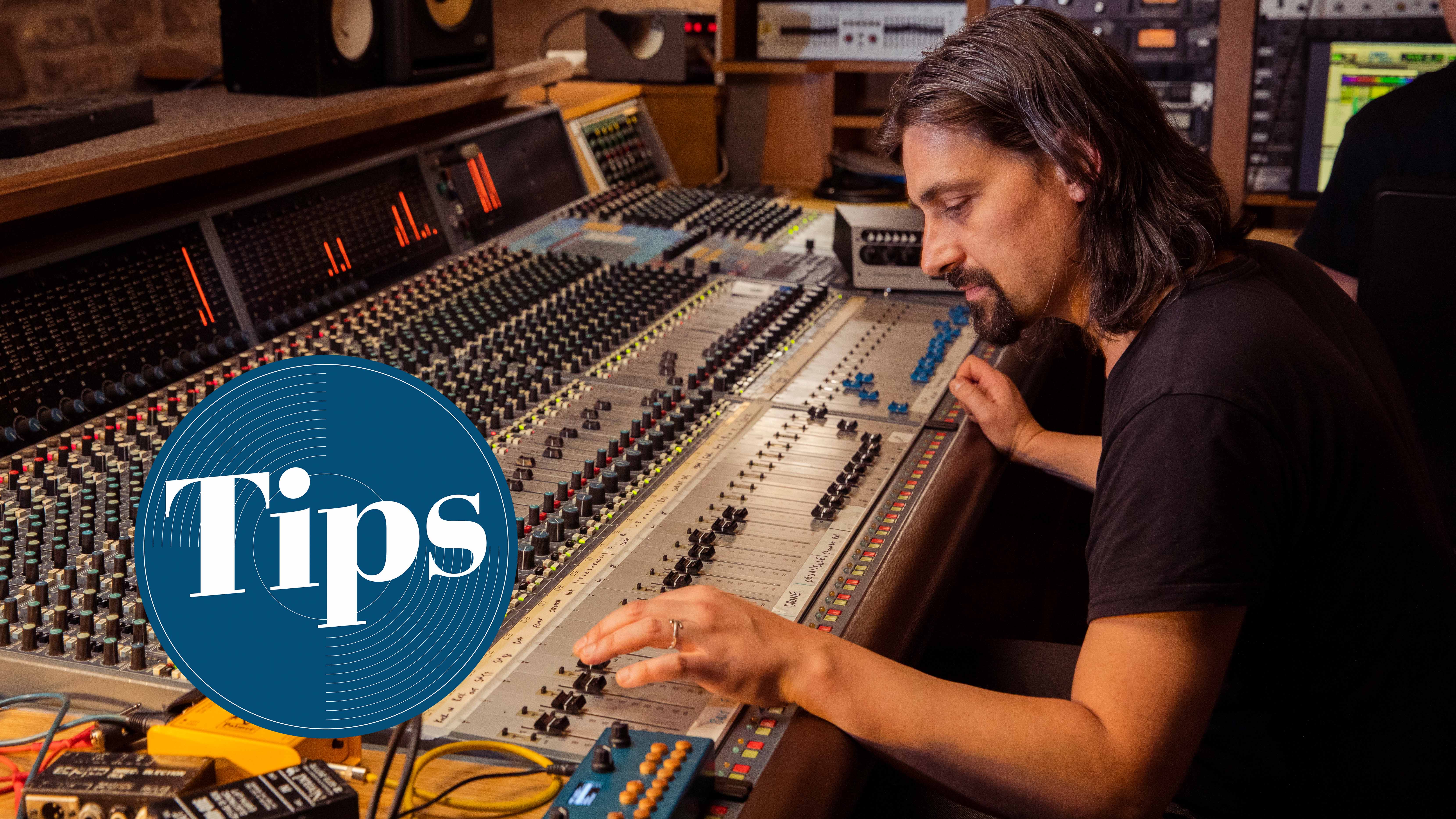
Jamie Evans should be a familiar name as a songwriter by now; musically he had everything in place with his band Mexicolas and their two excellent albums X and The Minerva Suite over a decade ago, but the industry around them had other ideas. Label shenanigans helped to derail the band and with it Jamie's chance to break through as a singer and multi-instrumentalist. So there goes another talent into obscurity… well not quite.
"At the time it was the hardest point of my life," reflects Jamie with us. "I couch-surfed for a bit. My marriage ended. But that's when my life really began. And it was amazing what happened next and where it led me and what I ended up doing."
I fell more in love with music by having a different perspective of it
It wasn't a straight road to get there but Jamie's experience of being in three bands over 13 years wasn't about 'making it' as a musician after all – he'd instead use it to carve a different path helping other players and songwriters to shine as a producer. "I fell more in love with music by having a different perspective of it," he reflects now.
Jamie has worked at the iconic FAME Studios in Muscle Shoals producing Music Row legends including Spooner Oldham and the Wrecking Crew's Jim Horn, had his productions mixed by the likes of Alan Moulder, Chris Sheldon and Adam Hawkins.
He still plays guitar live, in former Saint Jude frontwoman Lynne Jackaman's band, and he produced her debut solo album, One Shot. He's also played a key role with newer talent via his production work, including Wildwood Kin, The Luka State and Reigning Days.
"I'm now just a self-sufficient, totally flying by the seat of my pants producer," laughs Jamie, who is about to become a resident producer at Andy Banfield's Superfly Studios in Newark, England.
In an era of home recording setups it's really easy to feel musicians don't need producers as much as they did in the past, but the idea of the artist development a producer like Jamie can offer shouldn't be overlooked. It's key to how a producer can help musicians and their songs become great. We wanted to get Jamie's perspective on this, especially as a musician himself who has transitioned to a production role.
"Any band I work with, I'm certainly not saying that they're lucky to be working with me," says Jamie, "but to be working with someone like me, you're going to walk out of here better for it. It's about taking time to get to know someone and what they want to achieve with their music – to help them realise their potential."
Producer and engineer can be very different roles
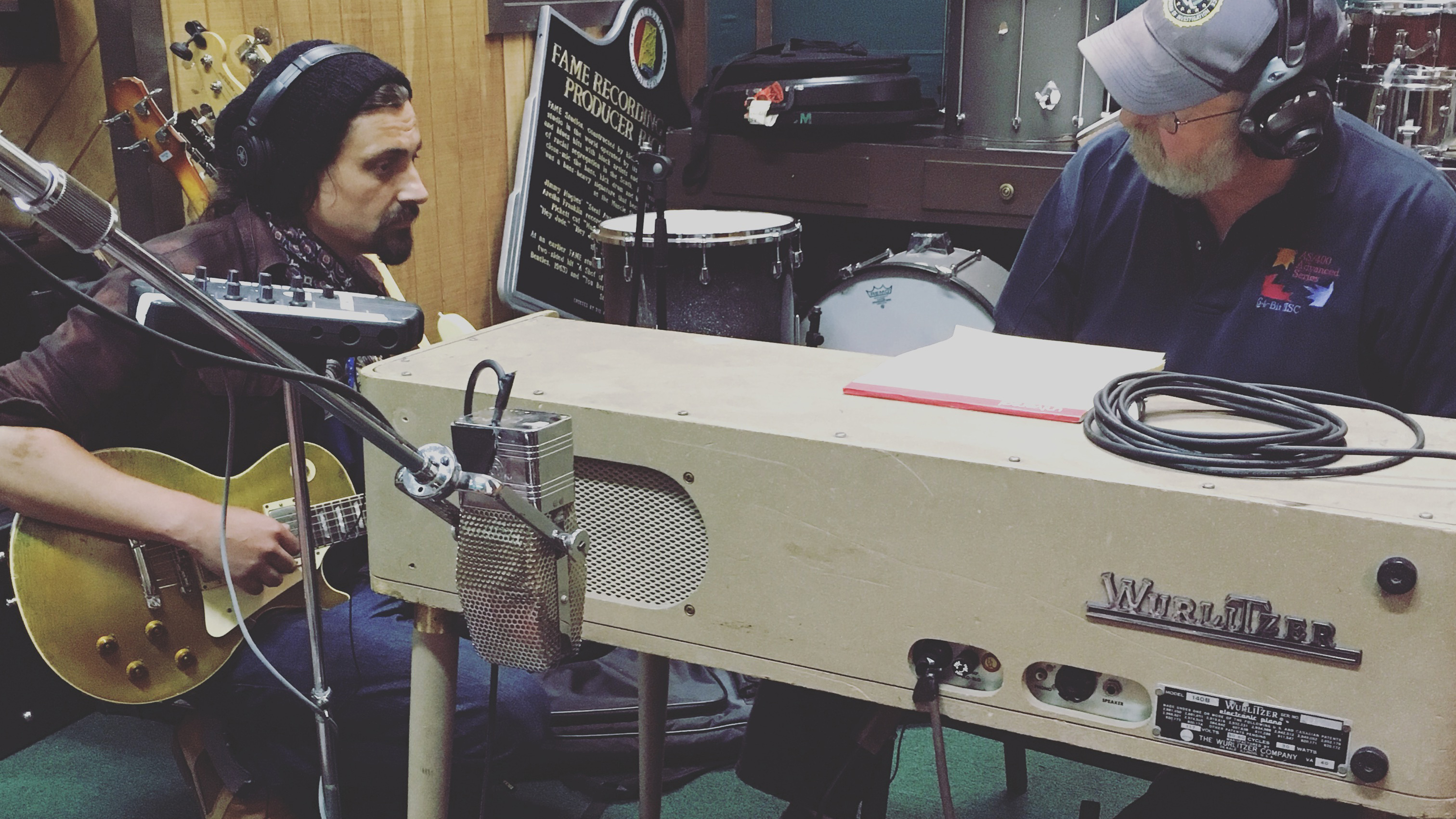
Jamie: "I have some technical knowledge but to me, it's always whatever room you're working in, as long as you can press record and it captures it; that's what it's there for.
There's a guy I met in Muscle Shoals actually; Jerry Phillips, Sam Phillips's son. And it was a couple of weeks before I was cutting in there, to do some pre-production first. And he said to me, 'When you're in the recording studio, you're not playing for the tape machine, you're playing for the universe. The tape machine just remembers it for you.' And that's exactly what it is. And this is a guy who grew up sat on Roy Orbison's knee and in a room watching Elvis do his thing. It's alchemy. It's absolute magic. Because if there was a method that worked, every single record ever made would use it.
Engineers are the unsung heroes of records
"I'm not one of those producers who are watching the clock, ever. Because I was used to doing that in a band; thinking, if you're a real musician, you'll stay up until it's right. So I've done a few sessions that have gone on to like five or six in the morning. And the engineer has stayed with me on it, because he's like, 'Let's get this'.
"But engineers are the unsung heroes of records. When people say to me, in conversation, 'Oh, I love the production on this album'. That's not production. That is great engineering and a brilliant mixer. Obviously, the song helps! But the way I see production is, from that musical side of things it is the arrangement; and it's getting the musicians to kind of step away from the b******t of everyday life. And really be in the moment and get that magic. Get that even if it's an extra 1%; it makes a huge difference."
Focus on people
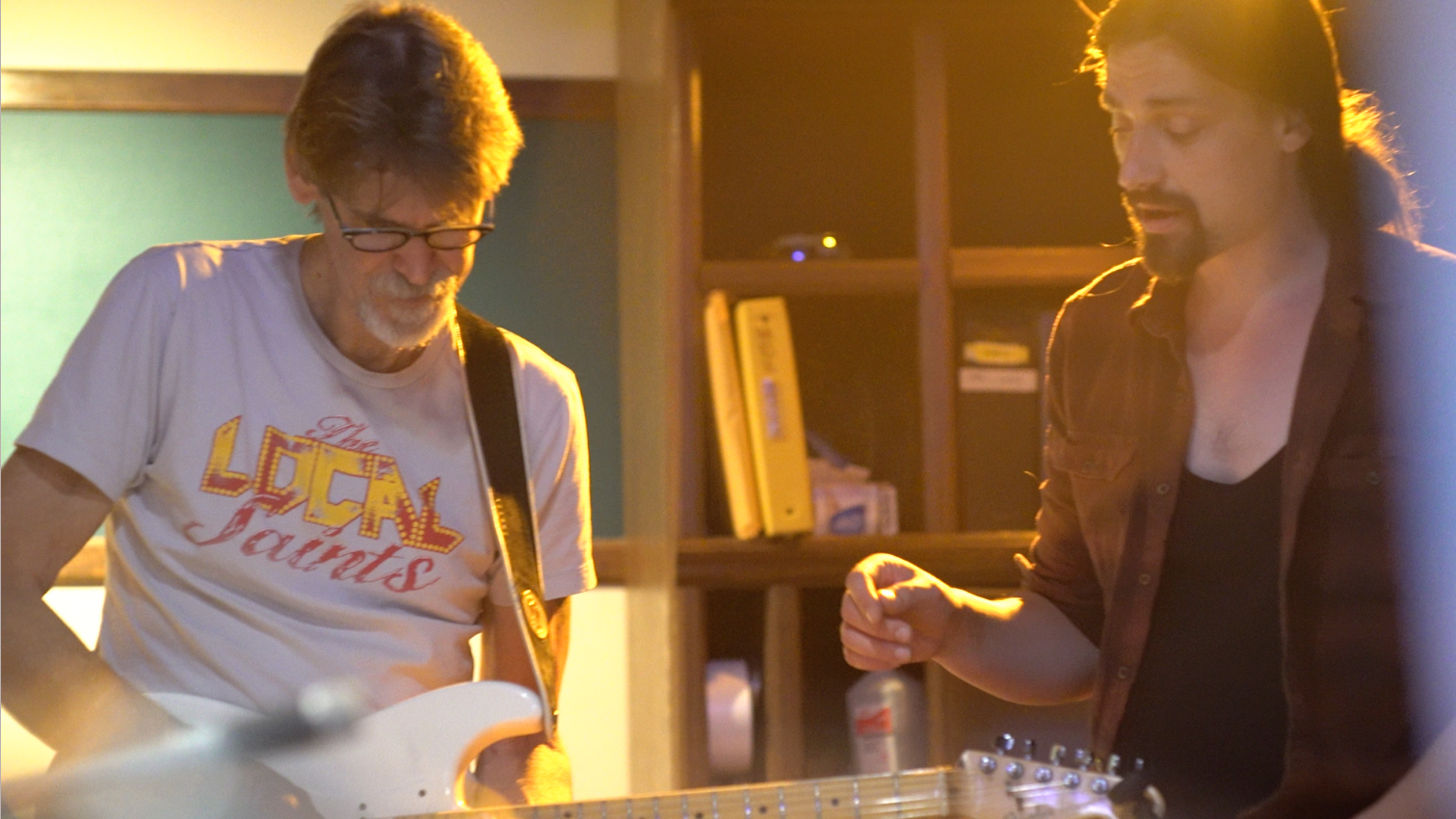
"I've never approached any record the same way – it's all about people. Because it's the one thing I never had in my career as an artist or as a frontman of a band; I never had that nurture. I never had that objective ear of someone who has some level of musicality or wisdom, or awareness of instinct and feel, to really push me because had I been pushed, I would have been even better.
I never had that nurture. I never had that objective ear of someone who has some level of musicality or wisdom, or awareness of instinct and feel, to really push me
"So I do that with people now. Because people make records – not machines, not computers, not the industry. It's people. So it's how you can that emotion on record. It blows my mind to think that doesn't matter how long you're in the studio and I'll say this to everyone I work with. When they get too myopic, and neurotic about the part being tight enough or anything like that, I say, 'Guys. you will do this – at some point, it will get done.'
"Take a five-minute song; it blows my mind that it doesn't matter how many takes you do, in the end, what the listener hears is five minutes of music with the musician playing that part. And it can take weeks… it can take years sometimes. And that's amazing. Because when do you say stop? When do you say, 'That's it, that's the take'? And that's what my job is.
"I guess in the end, my main gift as a musician is to be able to hear the finished thing. So I can really help an artist; be that a songwriter, a band, session player in whatever area and genre, just help them and kind of disarm them a bit. Get them to really feel that their part; the song and the vision."
Recording is a performance
"Remembering the way I had to kind of record myself as a musician back in the day, it becomes very physical.
"I've worked with singers that stand there with their hands in their pockets and I'll say, 'Move – move your face, have some expression'. Freddie Mercury expressed himself when he was singing those phrases, Scott Weiland was snaking around the stage – and the movement and expression affects the phrasing. Phrasing is everything."
Pre-production is vital
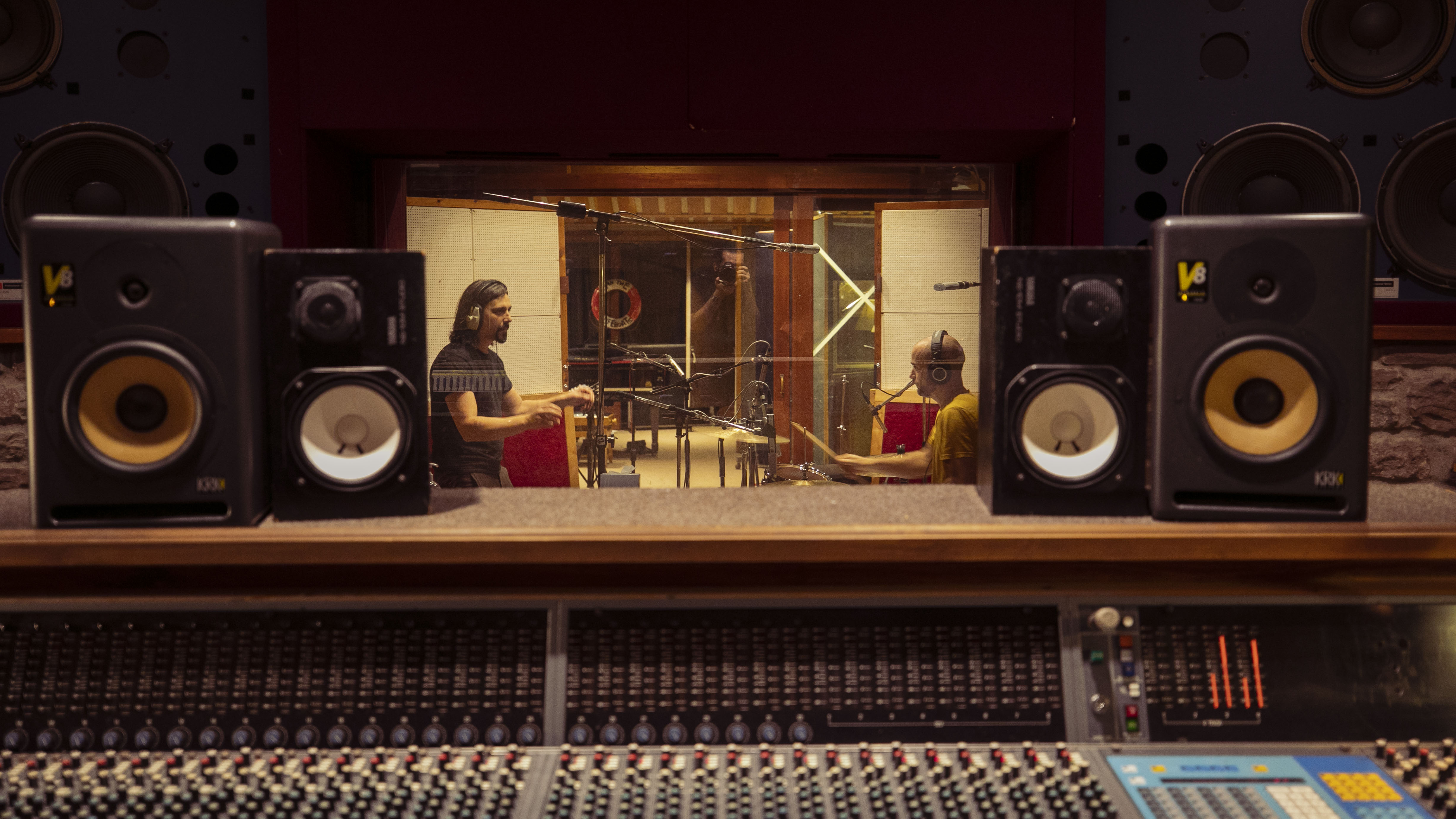
"Pre-production is spending time with the song, and the song is king. The vocals are king. Everything else is subject to change, and if you can spend the time on that stage it pays off – but it can be as low budget as possible. Even if I just go down on a train and I sit with artists in a rehearsal space, it's how I always work.
You have to play a lot of psychological games with musicians to get the best out of them
"I want to get to know the band. I want to hear their influences. I want to see how they are with each other. I want to hear their stories and get some grip on their personalities because you have to kind of weave that and almost be like a puppet master in the studio.
"You have to play a lot of psychological games with musicians to get the best out of them. To make them come out of their shell more and to make them gel more; to be more aware of what they're doing.
"Pre-production is also about sculpting things. If it's a rock band, is there a better riff to be had? You might spend time with the sounds but the way I work is more about, let's get this song working. Let's get it right and making sense arrangement-wise, and dynamically. Even if you're just recording it on an iPhone audio note. Take it away, take a breather and keep listening to it. Refine it from that foundation.
Then when we go into the studio, and it does depend where you go and what engineer you have, but when you have what you think is going to be a record prepared, there are no nasty surprises. There's nothing worse than sitting in a studio, watching a band that's trying to get a record deal, but they've got some money behind them. They're not really aware of how much money it's costing, not really aware of how much time it's taking for them to nail something they can do and they will do it eventually but it's costing days. So it's more important for me to be able to make them aware of that before they even think about going into the studio."
Producers need to consider how they'll charge
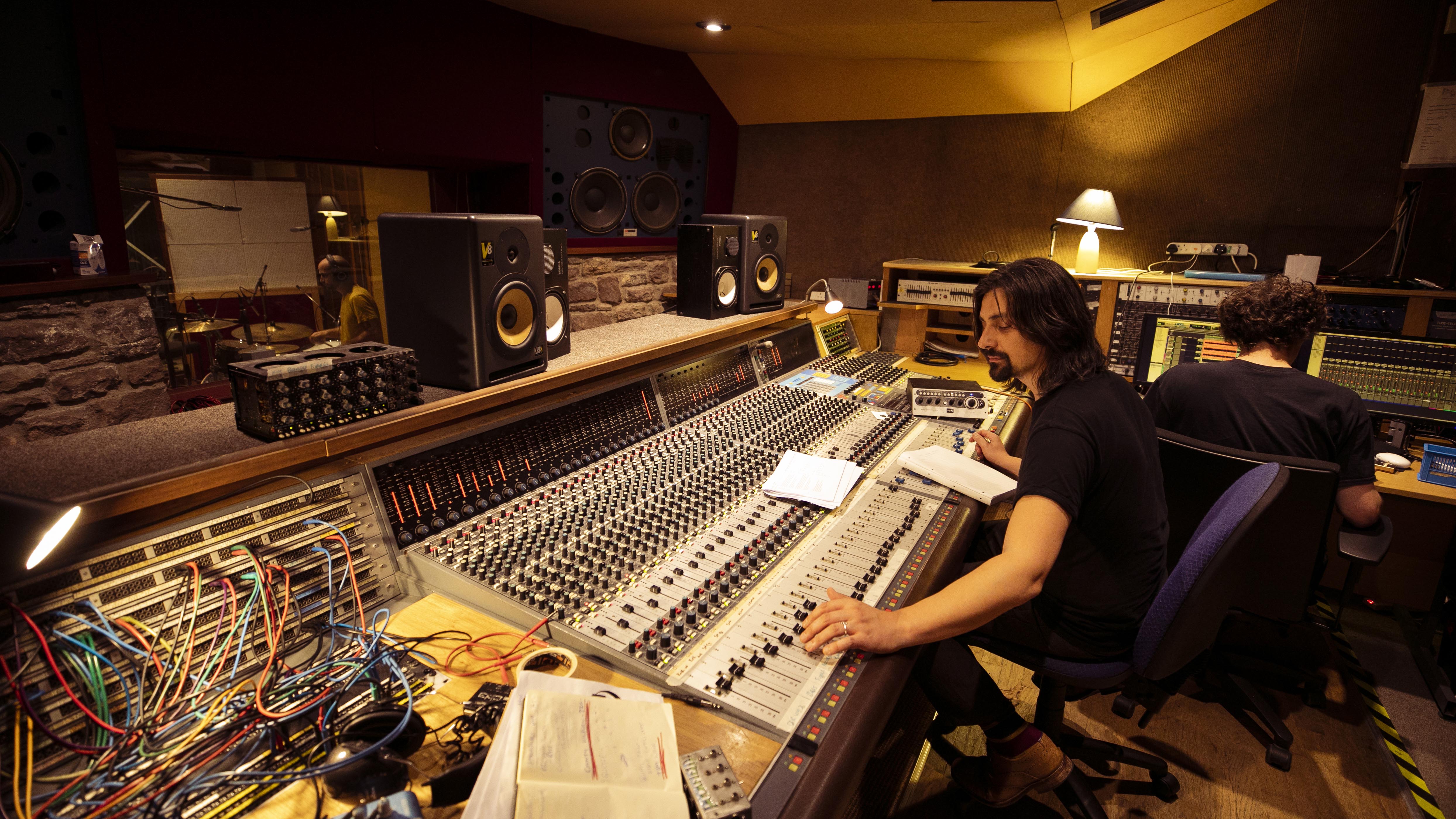
I've done day rates before and sometimes that can scare people off
"I've started doing a thing now where I'd rather charge per track. My deal now is all pre-production, all the time in the studio; if it takes a month to nail, it takes a month, and we'll figure it out. [The artist] has got to foot the bill for the studio but now I'm basing myself from Superfly it's easier to bring more of a package deal together; all your pre-production, the whole recording, the mixing, everything – should you want that – will cost you X amount.
"I've done day rates before and sometimes that can scare people off. Because sometimes it can take three days to just get the bass done. That's why then, for the sake of pressure; when they're under pressure and the label is putting pressure on them, or their management or investor, they will say to me, 'Well you just play it, you know how to play it'. And for the sake of time, you play it. But that's when you start getting screwed over. Years later, they can kind of forget who really played that and how it all came about."
A producer can get you to the purple patch
"The first few runs of bands I produced had investment and these were bands still developing a sound or sonic print – they weren't really being themselves. But they all went on to sign deals from the records I made with them.
"I really pushed them, like The Luka State [on their 2021 debut album Fall In Fall Out]. We ended up going to the Pool [Recording Studios] in London and it was 12 days, 12-hour sessions and tracking 12 songs. I said, 'We're gonna do a song a day, all on the floor, no one leaves except for toilet breaks'. And we played again and again. I wanted takes. Because we knew what the parts were.
Create the space for the phrasing of the vocal to sit on to serve the song
"After a couple of hours of them losing the plot and kind of making silly mistakes, there comes a point where there's this purple patch in the process where everyone kind of they gets it. They're just naturally locked in. And then I say, 'Right, now stand up and look at each other. Don't look at your instrument, feel your instrument. And look.' And honestly, as soon as everyone looks at each other, it just sounds amazing. It's like they're talking to each other. And they know what's coming next. They know when we do the vocals, they're going to be spot on, because we're creating that knock-on effect; create the space for the phrasing of the vocal to sit on to serve the song."
Don't get distracted by the industry
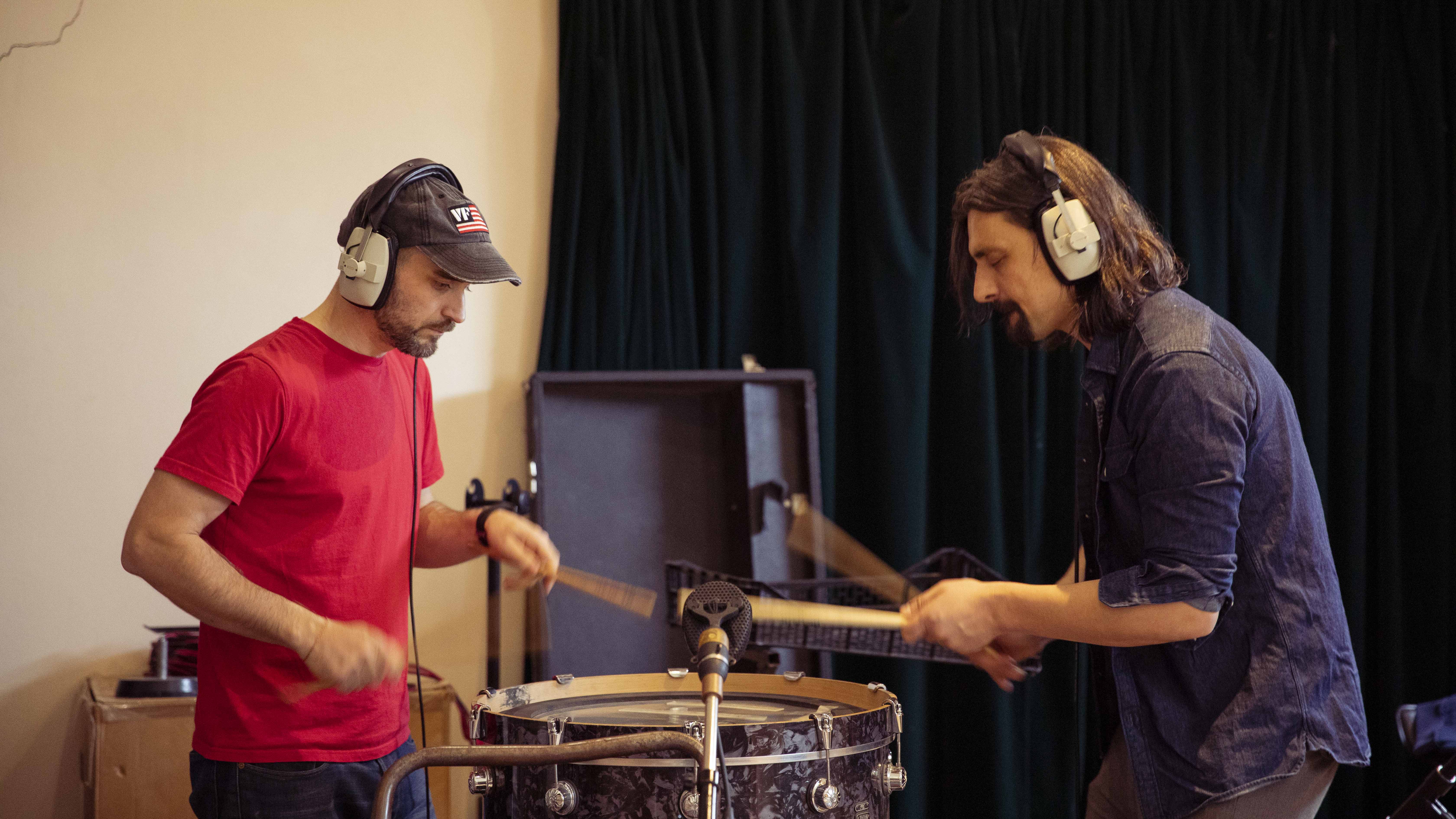
"It's about longevity. It's not about saying if you don't make it by the time you're 30 then you're finished. If an artist is talented, they're talented. That's it.
"It's going back to those two words; music industry. Screw the industry – the industry doesn't know what it's doing. The industry's ruined music. I really do believe that there'll be a time where things things can go full circle. I've seen it I've seen mini industries out in Belgium; the way bands work together and help each other. kno. They're out gigging all the time and making records. Helping each-other to make records."
Producing is often about psychology
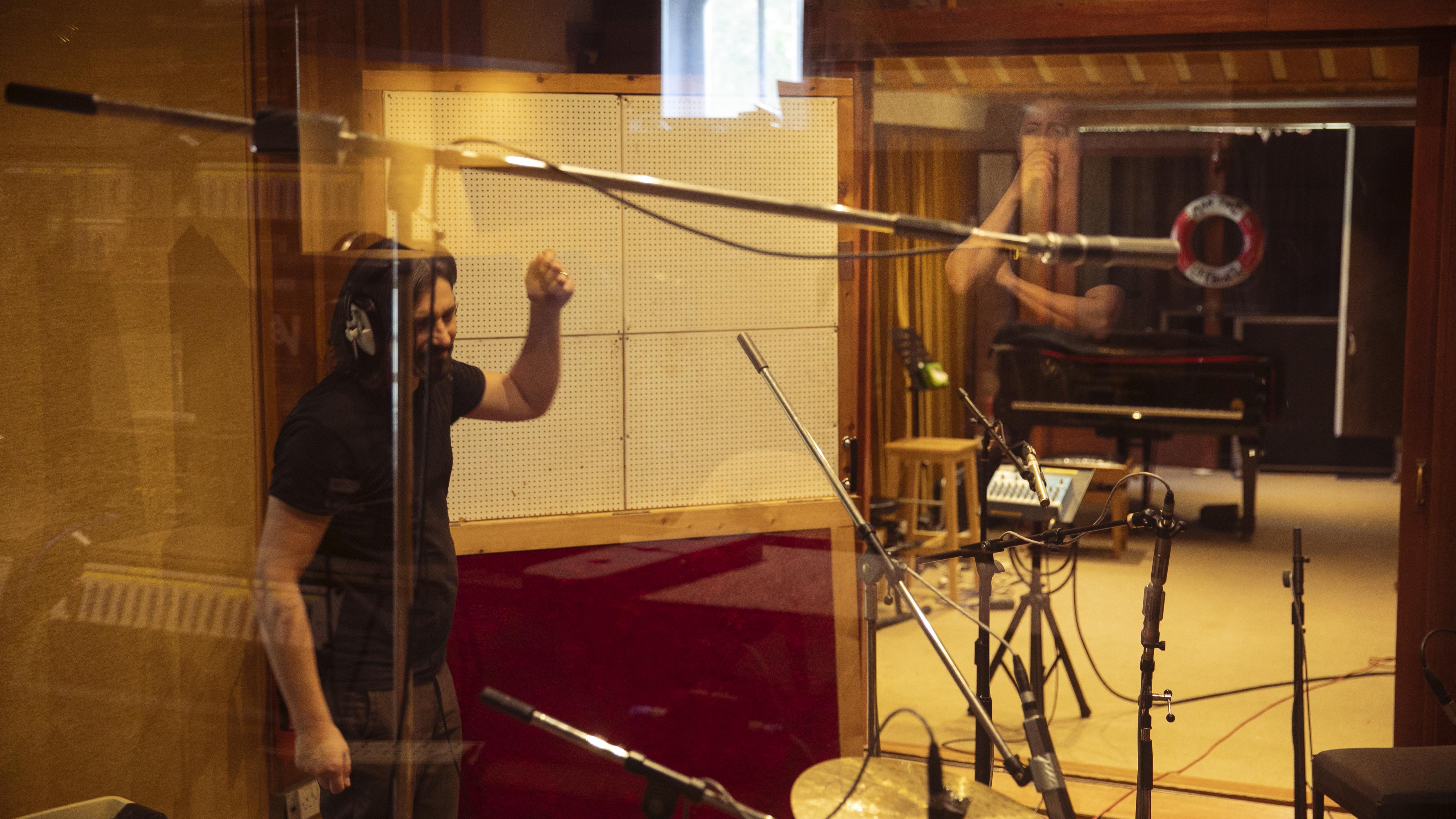
"You've got to understand the song, whatever genre that is. I've seen some so-called producers sit there who are really just songwriters; just very good at creating beats and stuff. And they build it bar by bar; 'Let's get a cool sound. Let's get a cool part. Let's get some kind of rhythm going.' They're writing as they're creating music.
If you're working in the traditional sense of production, it's your responsibility to represent the song but not control it
"But if you're working in the traditional sense of production, it's your responsibility to represent the song but not control it. It's a bit harder for me because I'm a multi-instrumentalist and songwriter first. But I kind of leave that by the wayside because I'm trying to see the songwriter and musician and connect with them.
"I really study the way they talk, especially singers. I'll watch them on the phone to their girlfriend or I'll see the way they crack a joke. You study their aura and what they're doing because when they sing, it has to make sense.
"My advice is to be completely open as a producer and allow the process to come to you. That comes with a lot of conversations; connecting and psychology first, to give the band or the artists the opportunity to show you how they shine. And then say, 'Now keep doing that. Can you feel how great you feel right now? Let's do more of that.'
"You can't go in and say, 'You can't do this and that'. What if two weeks down the line you come in one morning with a coffee and the drummer is sat at a piano and you didn't even know they played?"
What's your motivation?
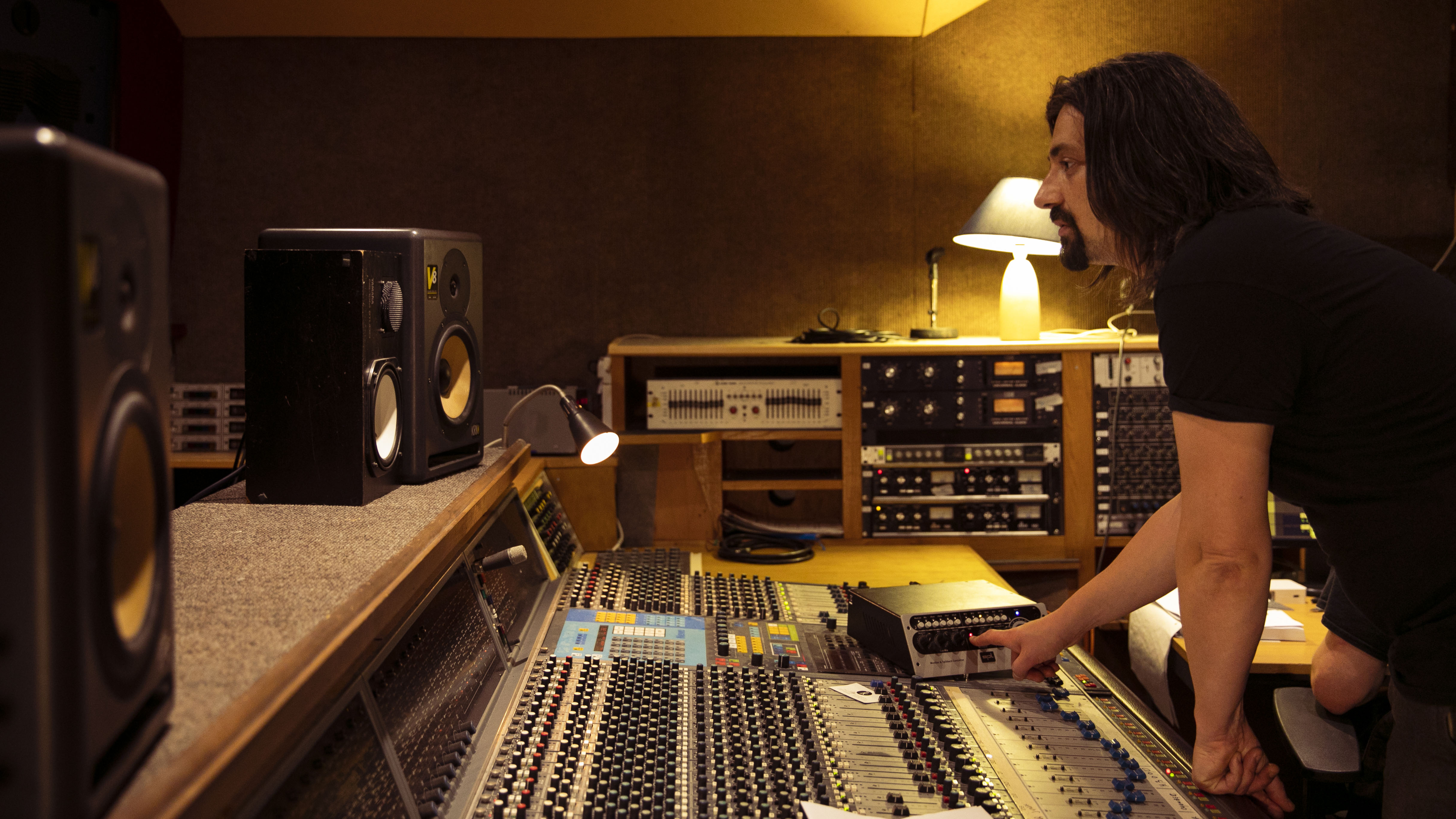
"Every great record takes you somewhere. And those are the ones we keep going back to you. And industry and money, fame and fortune have no place in that.
I'm trying to disarm people when recording them, to really bring that extra bit of something magical out of them
"Music can change one person's life. And I think if you're a producer, engineer, songwriter, or musician, the more aware you can be of that, the better; that music really can change lives.
"The reward is feeling something. I'm trying to disarm people when recording them, to really bring that extra bit of something magical out of them. What they play, just on just the spot, that performance is just gonna go out up into the ether out to the universe and just keep going.
"Don't be scared of taking risks as a musician, but just express yourself. If you've got a guitar don't do it thinking, 'Oh, I've got to be the next Stevie Ray Vaughan', or 'I need to buy better gear'. Just pick it up and express yourself."
- Find out more about Jamie Evans's work at jamieevansproducer.com and superflystudios.co.uk







